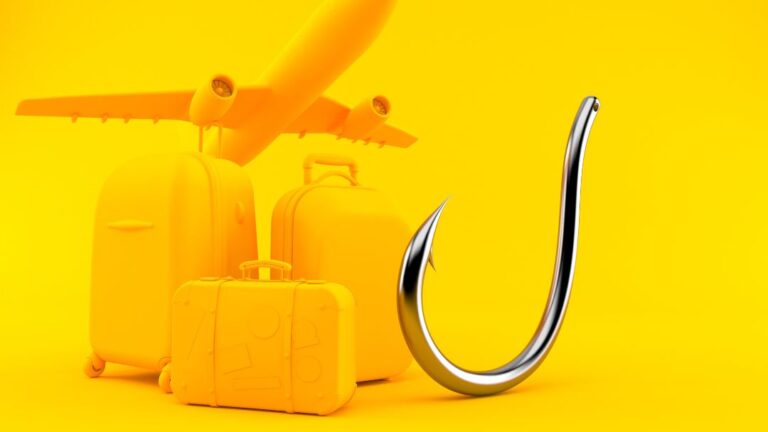Do You Need a Florida Boating License? Discover the Essentials Today!
Yes, a Florida boating license is required.
**requirements For Boating In Florida**
Overview Of Boating License Requirements In Florida
Before embarking on the beautiful waterways of Florida, it’s crucial to understand the requirements for boating in the Sunshine State. One of the first things to consider is whether you need a boating license. Let’s dive into some essential information about boating license requirements in Florida.
Age Requirements For Operating A Boat
In Florida, the minimum age for operating a motorized vessel is 14 years. However, there are some important stipulations to keep in mind. Individuals between the ages of 14 and 15 are required to complete a boater education course approved by the Florida Fish and Wildlife Conservation Commission (FWC). This course focuses on essential boating safety topics and ensures that young boaters are equipped with the knowledge and skills necessary for a safe and enjoyable boating experience.
If you’re 16 years or older, you don’t need to complete a boating education course. However, it’s still highly recommended to do so as it can enhance your understanding of boating rules, navigation, and safety measures.
Exceptions For Those Who Don’t Need A License
Licensing requirements may not apply to everyone planning to operate a boat in Florida. There are certain exceptions to be aware of:
- Non-residents: If you’re visiting Florida and hold a boating education card from a state that has reciprocity with the Florida FWC, you are exempt from the Florida boating education requirements. However, it’s crucial to check the specific regulations and qualifications for reciprocity between states.
- Charter or rental customers: If you plan to rent a boat or hire a charter service in Florida, you are not required to have a boating education card. The responsibility for ensuring the safety and compliance of the vessel rests with the rental company or charter service.
- Boat operators on private waterways: If you never plan to venture outside private waterways, such as ponds or lakes on your property, you don’t need a boating education card. Just remember to always prioritize safety and adhere to local regulations.
Understanding the boating license requirements in Florida is essential for a smooth and enjoyable experience on the water. Whether you’re a seasoned boater or a first-time adventurer, it’s important to prioritize safety and knowledge to protect yourself, your passengers, and the environment. So, before heading out to explore Florida’s picturesque waterways, make sure you meet the necessary requirements and equip yourself with the necessary skills to navigate the open seas responsibly.
**getting A Florida Boating License**
Getting a Florida Boating License
If you’re planning to enjoy the beautiful waters of Florida, it’s important to ensure you have the proper qualifications and knowledge to operate a boat safely. This starts with obtaining a Florida boating license, which demonstrates your understanding of boating laws, safety procedures, and navigational rules. In this article, we will explore the process for obtaining a boating license in Florida, the options available for completing a boating safety course, as well as the exam requirements and passing criteria. Let’s dive in!
Process For Obtaining A Boating License In Florida
If you’re wondering how to obtain a boating license in Florida, the process is relatively straightforward. The Florida Fish and Wildlife Conservation Commission (FWC) is responsible for issuing boating licenses, also known as Boating Safety Education Identification Cards. To obtain your license, you’ll need to follow these steps:
- Make sure you meet the minimum age requirement. In Florida, anyone born on or after January 1, 1988, is required to have a boating safety education identification card.
- Complete an approved boating safety course. This course can be taken in a classroom setting or online, which we will explore in the next sections.
- Pass the boating safety exam. This exam tests your knowledge on various boating topics, such as navigation, risk management, and emergency procedures.
- Pay the required fee. The fee for obtaining a boating license in Florida is affordable and helps support boating education and safety programs.
Options For Completing A Boating Safety Course
When it comes to completing a boating safety course in Florida, you have two main options: classroom courses and online courses. Let’s explore each of these options more in detail:
Classroom Courses
Classroom courses offer a traditional learning experience with the guidance of an instructor. These courses provide interactive discussions, hands-on activities, and the opportunity to connect with fellow boaters. The Florida Fish and Wildlife Conservation Commission offers classroom courses in various locations throughout the state. To find a nearby classroom course, you can check the FWC website or contact their office for more information.
Online Courses
If you prefer a more flexible and self-paced learning experience, online courses are a convenient option. Online courses allow you to study at your own pace from the comfort of your home. The Florida Fish and Wildlife Conservation Commission offers an approved online course, which covers the same material as the classroom courses. You can access the online course through their website, where you’ll find a user-friendly platform with interactive lessons, quizzes, and practice exams.
Exam Requirements And Passing Criteria
Once you have completed the boating safety course, it’s time to take the boating safety exam. The exam consists of multiple-choice questions that assess your knowledge and understanding of boating rules and regulations. To pass the exam and obtain your Florida boating license, you must achieve a score of at least 70%. If you don’t pass the exam on your first attempt, don’t worry. You can retake the exam as many times as needed without any additional fees.
With the Florida boating license in hand, you can confidently explore the stunning waters of Florida, knowing you have the necessary knowledge to navigate safely. Whether you choose a classroom course or an online course, the most important aspect is to prioritize boating safety and follow the rules and guidelines set forth by the Florida Fish and Wildlife Conservation Commission. Safe travels!
**benefits Of Having A Florida Boating License**
Obtaining a boating license in Florida comes with several important benefits that go beyond simply complying with regulations. Whether you are a novice boater or someone with years of experience navigating the Florida waterways, having a valid boating license can enhance your boating experience, ensuring safety and preventing potential fines or penalties. In this article, we will explore the importance of having a boating license in Florida, how it ensures safety on the water, and its role in granting access to certain waterways and activities. So let’s dive in!
Importance Of Having A Boating License In Florida
When it comes to boating in Florida, having a boating license is not just a legal requirement, but it also demonstrates your knowledge and competency as a boater. Florida law mandates that individuals born on or after January 1, 1988, must complete an approved boating safety course and obtain a valid boating license to operate a vessel with a motor of ten horsepower or greater. This requirement aims to improve boater safety and reduce accidents on the water.
Ensuring Safety On The Water
One of the primary reasons for obtaining a boating license in Florida is to prioritize safety while enjoying the state’s beautiful waterways. The boating safety course covers essential topics such as navigation rules, boat handling, emergency procedures, and the importance of wearing life jackets. By completing this course and obtaining your boating license, you equip yourself with the necessary knowledge to handle unexpected situations and ensure the safety of yourself, your passengers, and other boaters.
Avoiding Penalties And Fines
Operating a vessel without a valid boating license in Florida can result in hefty penalties and fines. Law enforcement officials frequently patrol the waterways and conduct routine safety checks to ensure compliance with boating regulations. Without the required license, you run the risk of being fined, which can put a dent in your boating budget. By obtaining a boating license, you not only avoid potential fines but also demonstrate your commitment to responsible boating practices.
Access To Certain Waterways And Activities
Having a Florida boating license opens up a world of opportunities when it comes to exploring the state’s diverse waterways and engaging in various recreational activities. Some waterways and activities require boaters to possess a valid license to ensure the safety of participants and preserve the environment. For example, certain fishing tournaments and events may only allow participants with a boating license to enter the competition. Moreover, possessing a boating license may grant you access to restricted areas or activities, enhancing your boating experience and allowing you to fully enjoy what Florida has to offer.
In conclusion, acquiring a boating license in Florida goes beyond compliance with regulations – it offers a myriad of benefits that contribute to a safer and more enjoyable boating experience. By understanding the importance of having a boating license in Florida, ensuring safety on the water, avoiding financial penalties, and granting access to specific waterways and activities, you can confidently navigate Florida’s breathtaking water bodies while adhering to the rules and regulations that protect both boaters and the environment.
**boating Safety Tips In Florida**
htmlEssential Safety Practices For Boating In Florida
When it comes to boating in Florida, it is important to prioritize safety above all else. Whether you are a seasoned boater or a newbie, following essential safety practices is crucial to ensure a safe and enjoyable experience on the water.
- Wear a life jacket: Always wear a properly fitted and USCG-approved life jacket while boating. This is the single most important safety precaution you can take.
- Designate a sober operator: Never operate a boat under the influence of alcohol or drugs. Choose a responsible person to be the designated driver.
- Be aware of your surroundings: Keep a close eye on other boaters, swimmers, and obstacles in the water. Maintain a safe distance from other vessels and follow the navigational rules.
Understanding The Local Rules And Regulations
When boating in Florida, it is essential to understand and adhere to the local rules and regulations. Familiarize yourself with the specific requirements and laws in your area to avoid any legal issues or accidents on the water.
| Rules and Regulations | Description |
|---|---|
| Boating license: | In Florida, anyone born after January 1, 1988, is required to have a boating license or complete a boater education course. |
| Speed limits: | Observe the designated speed limits in different areas, especially in congested areas or near swimmers. |
| No-wake zones: | Respect the no-wake zones and operate your boat at a slow speed to minimize the impact on the environment and nearby vessels. |
Weather Considerations And Emergency Preparedness
Being mindful of weather conditions and prepared for emergencies is crucial for boaters in Florida. Sudden storms and changing tides can pose serious risks, so it is essential to stay informed and take necessary precautions.
- Check the weather forecast: Before heading out, check the weather forecast for the area. Postpone your boating trip if storms or high winds are expected.
- Cover emergency essentials: Always carry a marine radio, a charged mobile phone, and other emergency supplies like a first aid kit, flares, and a rescue whistle.
- Create a float plan: Inform someone on land about your boating trip details, including your departure and expected return time. This helps authorities to locate you in case of any emergency.
Equipment And Maintenance Checklist
Proper equipment and regular maintenance are essential aspects of boating safety in Florida. Conducting routine checks and ensuring your boat is in good working condition can prevent breakdowns and accidents on the water.
- Inspect safety equipment: Check that all required safety equipment, such as fire extinguishers, navigation lights, and distress signals, are in proper working order.
- Inspect and maintain the boat: Regularly inspect the hull, engine, steering, and other crucial components of your boat. Follow the manufacturer’s recommendations for maintenance and address any issues promptly.
- Observe weight limits: Avoid overloading your boat with excessive passengers or gear, as it can affect your boat’s stability and handling.
**renewing And Replacing A Florida Boating License**
Renewing and replacing your Florida boating license is a straightforward process that ensures you can continue to enjoy the waterways safely and legally. Whether your license has expired or you have misplaced it, the Florida Fish and Wildlife Conservation Commission (FWC) provides simple steps to help you get back on track. In this section, we will outline the procedures for both renewing an expired boating license and replacing a lost or damaged license.
Steps For Renewing An Expired Boating License In Florida
So, your Florida boating license has expired? Not to worry, renewing it is quick and easy! Here are the steps you need to follow:
- Visit the FWC’s Go Outdoors Florida website. This is where you will initiate the license renewal process.
- Click on the “Boating” section and select “Renew My License.”
- Provide your personal information, including your full name, date of birth, and your current boating license number.
- Review the information you have entered and submit your renewal application.
- Pay the renewal fee, which is typically a small amount. The website will guide you through the payment process to complete your renewal.
- Once your payment is confirmed, you will receive a confirmation email or receipt.
- Allow a few business days for processing, and your renewed boating license will be mailed to the address on file.
It’s important to note that it is your responsibility to renew your boating license before it expires. Operating a vessel with an expired license may result in penalties or fines, so be sure to stay up-to-date.
Procedures For Replacing A Lost Or Damaged Boating License
If you have lost or damaged your Florida boating license, you’ll need to follow these steps to obtain a replacement:
- Visit the FWC’s Go Outdoors Florida website.
- Select the “Boating” section and click on “Replace My License.”
- Provide your personal information, such as your full name, date of birth, and any relevant details about your lost/damaged license.
- Follow the instructions to pay the replacement fee, which is usually a nominal amount.
- Once payment is processed, you will receive a confirmation email or receipt.
- Allow a few business days for processing, and your replacement boating license will be mailed to the address on file.
It is crucial to replace your lost or damaged license promptly as operating a vessel without a valid license can result in legal consequences. By following these steps, you can easily obtain a replacement and continue enjoying your boating adventures in Florida.
Conclusion
So, if you’re planning to enjoy the beautiful waters of Florida, it’s essential to determine whether you need a boating license. By understanding the state’s laws and regulations, you can ensure a safe and enjoyable experience on the water. Remember to familiarize yourself with the age requirements and education courses, as they vary depending on your age and boating activities.
By obtaining the appropriate boating license, you can navigate the Florida waters confidently and legally. Happy boating!


